U.S. Capitol attack exploited in China to attack Hong Kong democracy movement
State-controlled media exploited the attack to
U.S. Capitol attack exploited in China to attack Hong Kong democracy movement
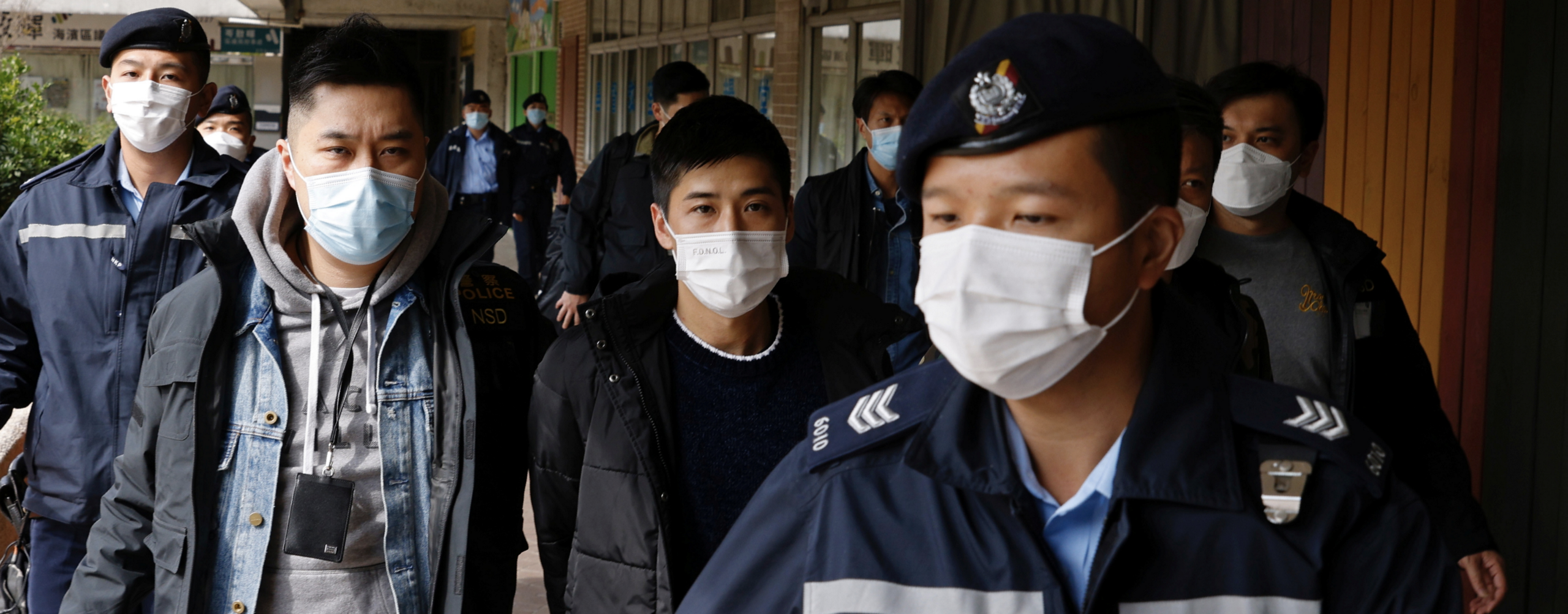
State-controlled media exploited the attack to advance hostile narratives against Hong Kong’s pro-democracy movement
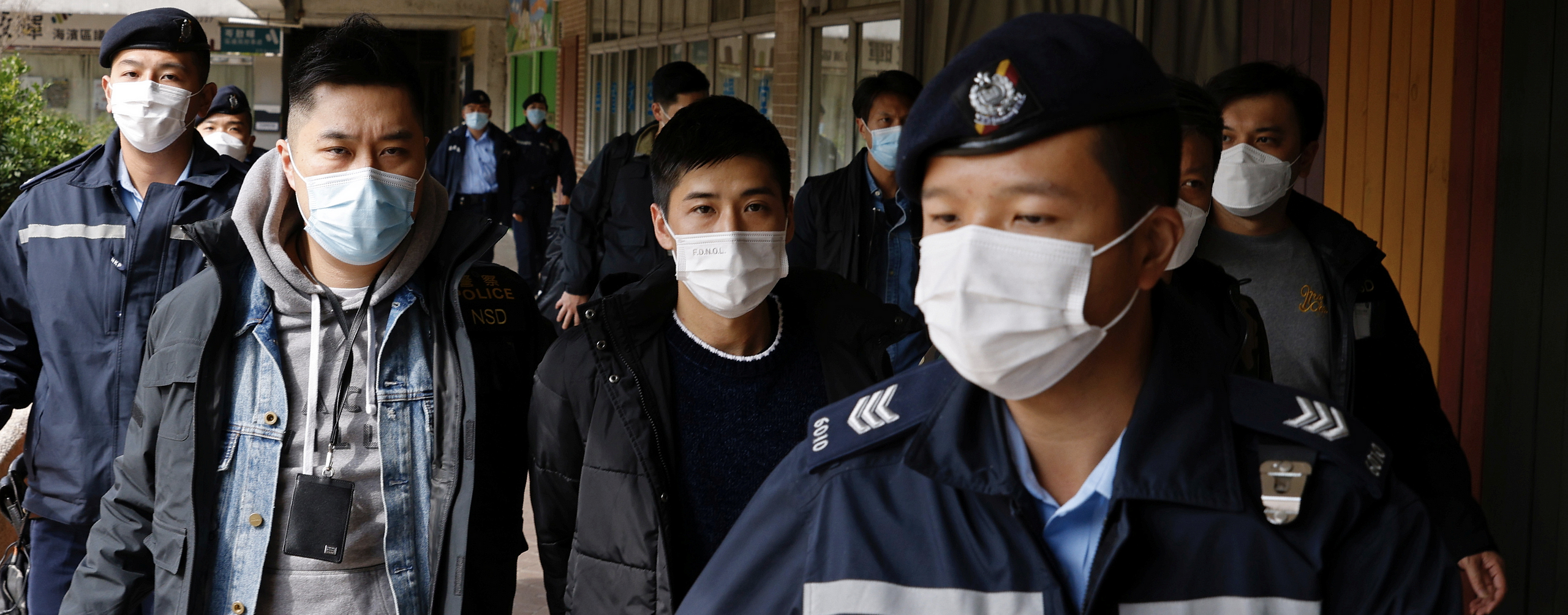
On January 6, 2021, violence broke out in the U.S. Capitol as a mob of pro-Trump extremists stormed the building in an attempt to disrupt the U.S. Congress’s certification of electoral votes and the peaceful transition of power. The actions of the mob, which resulted in five deaths, came after weeks of disinformation by President Donald Trump alleging electoral fraud, and his refusal to accept the results of the November 2020 election.
In response to the assault, French President Emmanuel Macron proclaimed, “a universal idea — that of ‘one person, one vote’ — is undermined.” Chancellor Angela Merkel of Germany blamed the riot on President Trump, saying that “he stoked uncertainties about the election outcome, and that created an atmosphere that made the events of last night possible.” Similarly, Prime Minister Boris Johnson of Britain condemned Trump’s behavior of encouraging the protestors to “storm the Capitol.”
While their comments expressed concern over the attack’s threat to democracy, remarks from Chinese officials, especially that of Foreign Ministry spokesperson Hua Chunying, have focused on undermining democracy in general, and attacking democratic movements in Hong Kong. The day of the U.S. Capitol attack, Chinese police arrested more than 50 democracy activists in a series of raids across the city as part of its increasing crackdown.
“A beautiful sight to behold”
During a press conference on January 7, 2021, Hua pointed out what she called a “double standard” in U.S. media and politics: referring to protests in Hong Kong as “a beautiful sight to behold” (a statement attributed to U.S. Speaker of the House Nancy Pelosi), while calling the Capitol Hill chaos a “riot” and “mob violence.”
Hua misrepresented Pelosi’s statement on Hong Kong, however: Speaker Pelosi’s reference was in response to a candlelight vigil held in Hong Kong on June 4, 2019, commemorating those who lost their lives in the 1989 Tiananmen Square protest, not the 2019 pro-democracy protests in Hong Kong.
The misappropriation of Speaker Pelosi’s remarks was first invoked by Chinese government officials and state-controlled media during the George Floyd protests in the United States. On May 29, 2020, the Central Committee of the Communist Youth League posted on Weibo with the caption, “A beautiful sight to behold? #Minnesota will dispatch the National Guard to maintain order.” The post attracted high engagement from its users, with more than 20,000 shares and 421,000 likes.
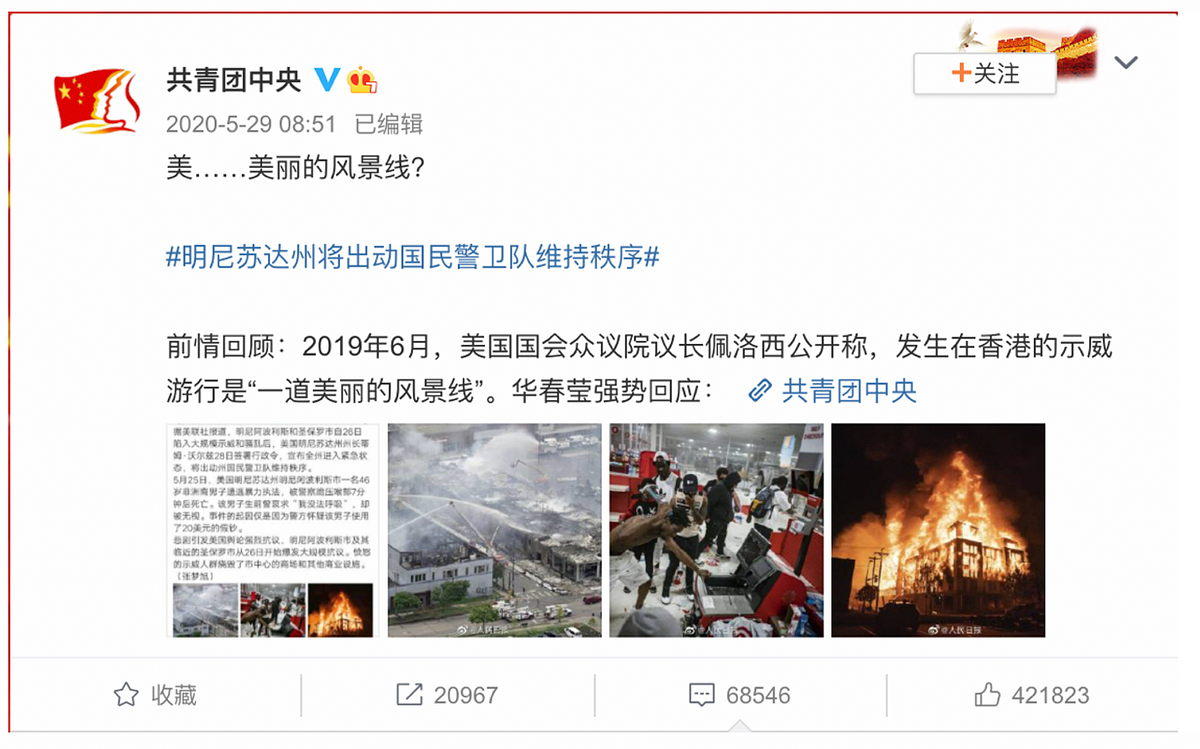
On May 30, 2020, Global Times posted an article titled “So justified: With the ‘most beautiful scenery,’ Trump and Obama in conflict again!” Here, the expression “有理儿有面,” which translates to “so justified,” conveys sarcasm. The chief editor of Global Times, Hu Xijin, later responded on June 1, 2020 on his personal account to criticism toward Global Times’s use of the term “beautiful scenery” to describe violence, saying that “This term was used by House Speaker Pelosi to describe the Hong Kong riots and was welcomed by American politicians. The Chinese have the right to return this term to those American politicians at this time…because we should have the courage and capability of fighting back when unfairly treated.”
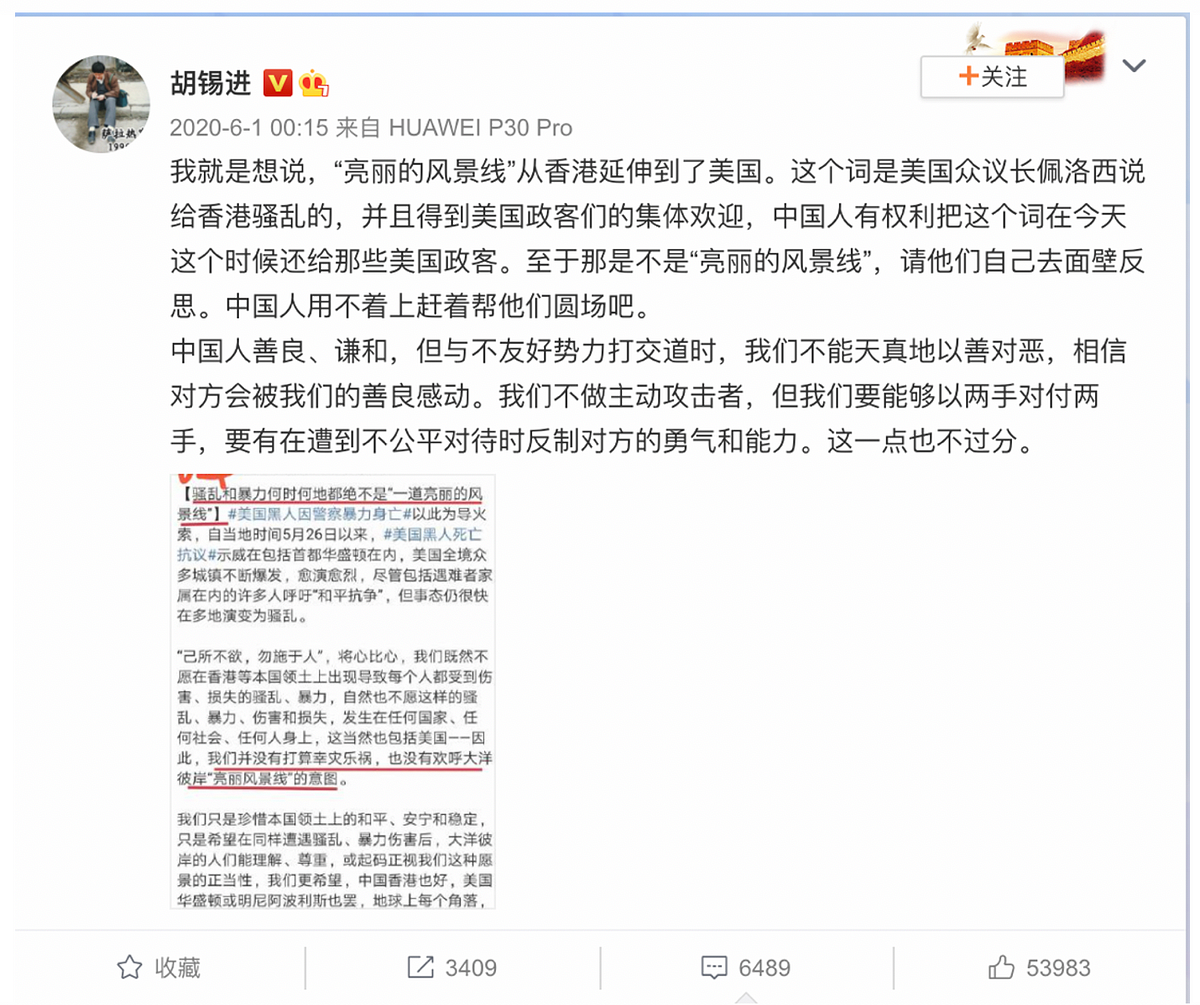
The “beautiful sight” narrative was invoked again following the U.S. Capitol insurrection and was intended to cast further doubt on both democracy and Hong Kong activists. From January 7–8, 2020, eight accounts that belong to Hong Kong Special Administrative Region government, state-controlled media, and pro-CCP media in Hong Kong posted 28 times on Facebook with reference to this phrase, engaging over 19,523 interactions on Facebook at the time of writing. These narratives called out the U.S. for having “double standards” on Hong Kong and its domestic politics, implying that Hong Kong protestors, who are in fact far less violent, are comparable to the U.S. Capitol rioters in terms of lawlessness.
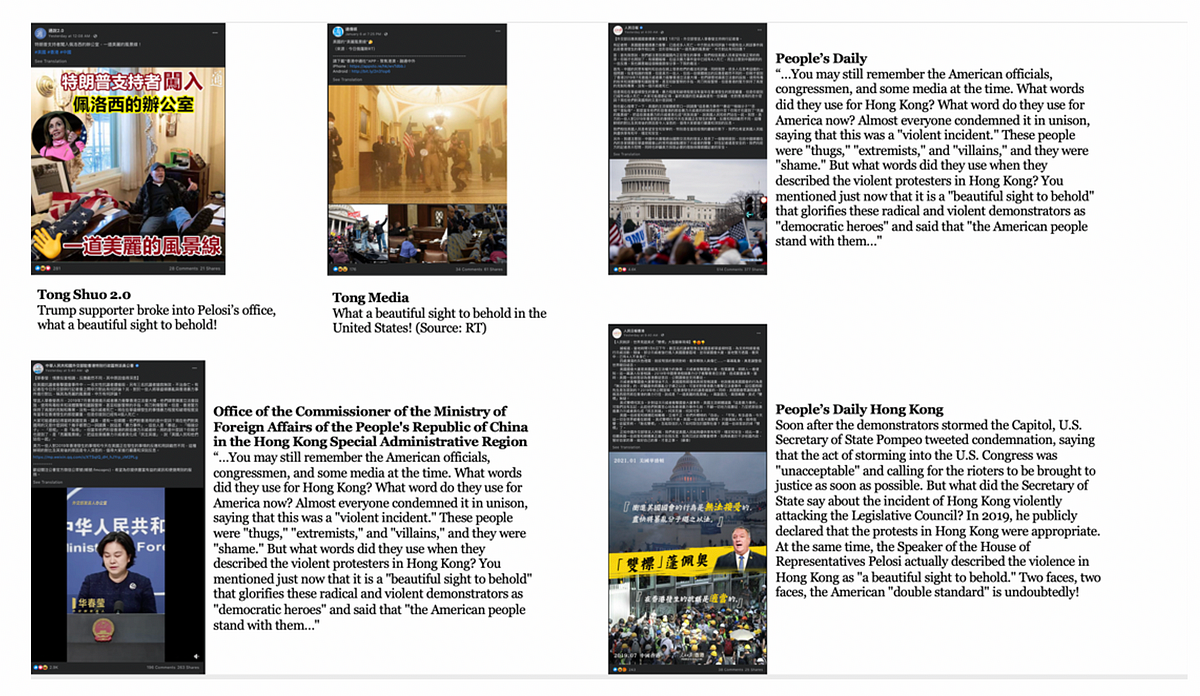
Other examples include a People’s Daily post stating, “People’s sharp opinion: The world witnesses the American ‘double standard’ and how it screwed up on a massive scale,” which garnered 4,805 engagements on Facebook. Two additional posts by People’s Daily and the Office of the Commission of the Ministry of Foreign Affairs of the PRC in Hong Kong SAR, summarizing Hua’s remarks at the press conference, achieved 3,453 and 5,530 engagements respectfully. The entity that posted the most was HKG News, a news outlet founded by Robert Chow, who is also the founder for Silent Majority for Hong Kong, a political organization known for its support for the Chinese government and previously accused of spreading disinformation about pro-democracy protestors in Hong Kong.
The same group of accounts also posted on Twitter, pursuing similar narratives and attempting to stir up debate on the “double standard” of the United States. The most active accounts among them on Twitter is Tong Shuo, which propagates meme-like news that mocks U.S. democracy, albeit with little engagement. For example, the post below made a faulty comparison between Chinese pandemic aid volunteers and Capitol Hill rioters. The messaging appeared intended to incite negative sentiment towards the “American system” while complimenting the “Chinese model.”
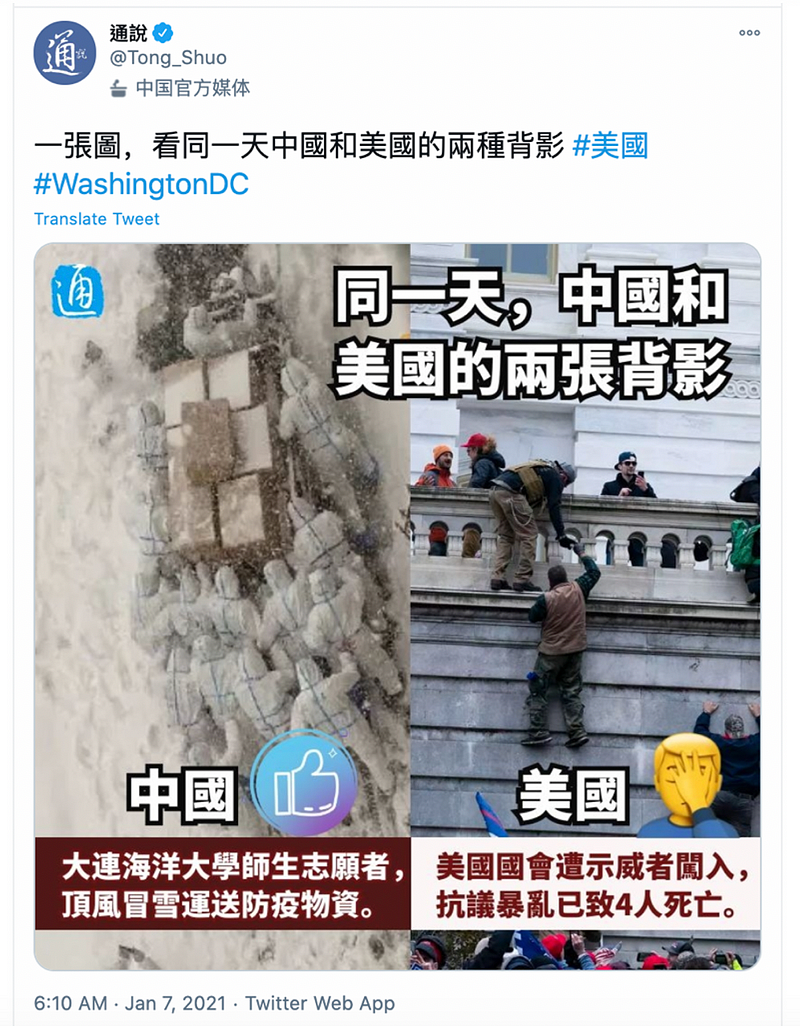
Domestic messaging
In addition to these efforts on Western social media platforms, government entities and state media in China have also seized the opportunity to convey similar information to domestic audiences via Chinese social media, such as Weibo.
For example, on January 7, 2021, the Central Committee of the Communist Youth League pinned its Weibo post about the protestors’ brief takeover of the U.S. Capitol to the top of its page, with the mocking caption, “World Famous Piece of Art.” The post went viral on Weibo, attracting 834,790 engagements within only one day. Tower of Violet Light, a government journal hosted by the State Organs Work Committee of the CPC Central Committee and an active social media account of the government, commented on the post with the phrase “拆 家 做 主” (“Tear down your home and be the host”).
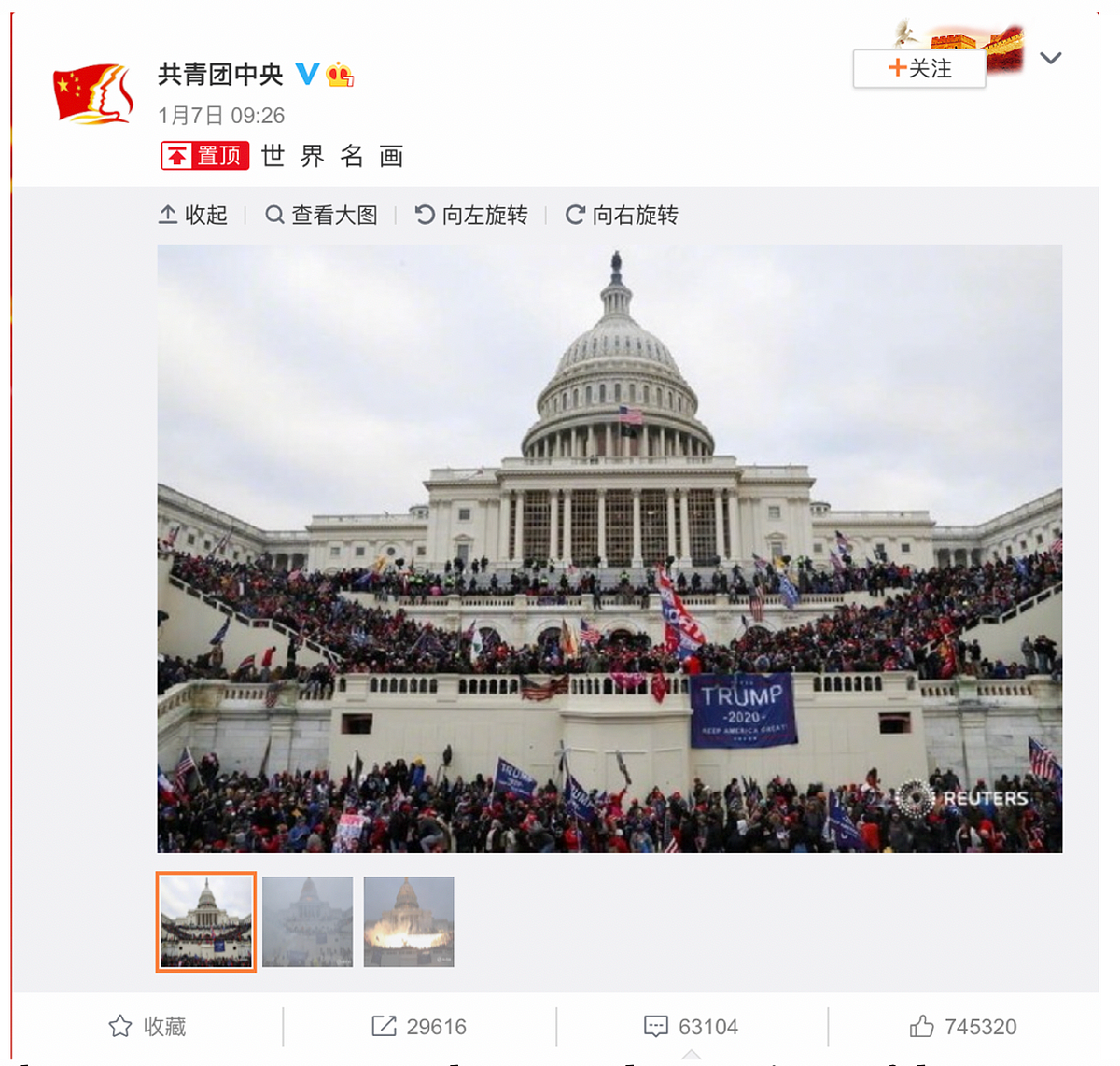
Another post by the Central Committee of the Communist Youth League also made direct comparisons to Hong Kong, posting a meme quoting then-Secretary of State Mike Pompeo’s statements on the protests happening in Hong Kong and in D.C. While the upper section of the meme quoted Pompeo as saying, “We will always be there with the people of Hong Kong,” the bottom section read, “Breaching the law and riots are unacceptable.” A caption added, “Which time is this lying?” insinuating that the U.S. and its politicians having double standards.
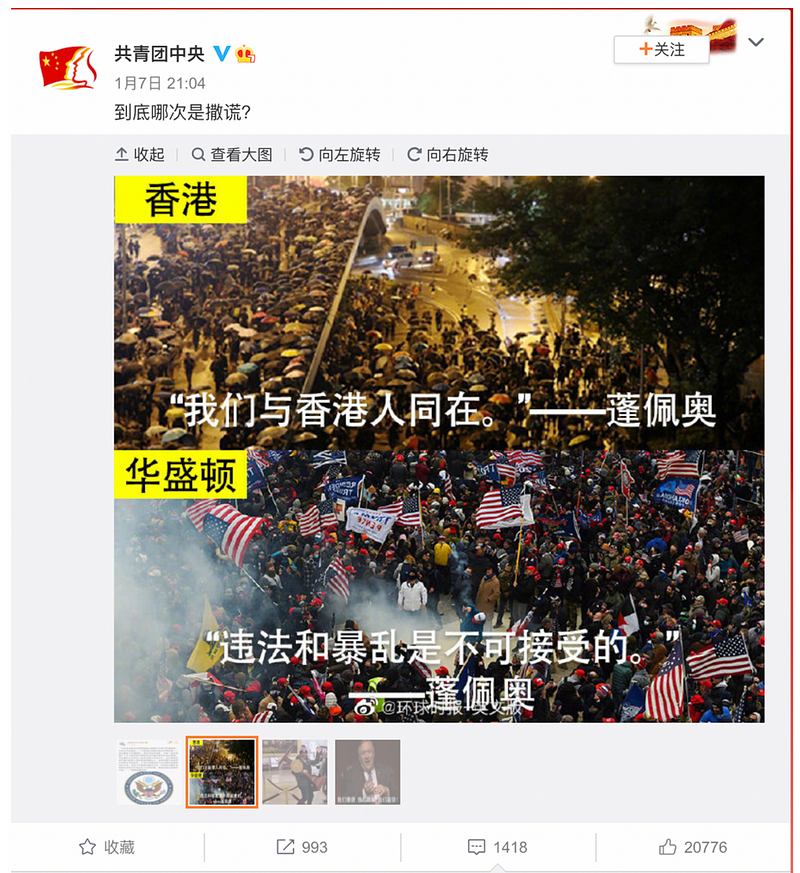
On both Western and Chinese social media platforms, Chinese government-linked entities sought to leverage the chaos at the U.S. Capitol on January 6 to discredit Western support for the Hong Kong protestors. This came after increased international attention on the situation of Hong Kong, due to on the mass arrest the government made in Hong Kong in pursuance of National Security Law on January 6, 2021. The chaos in Washington, D.C. is seen by the party-state as a timely incident where they can amplify discourse that not only exaggerate the violence of Hong Kong protestors but eventually legitimize harsher control over Hong Kong under the new legal paradigm of the National Security Law.
Follow along for more in-depth analysis from our #DigitalSherlocks.

